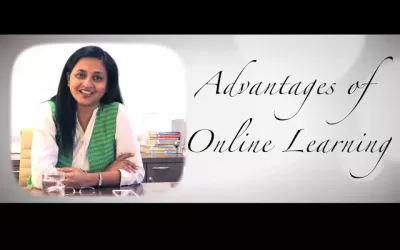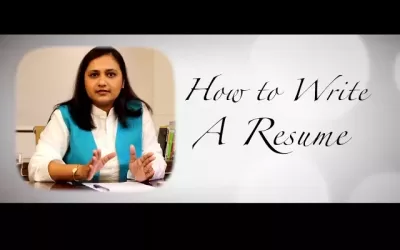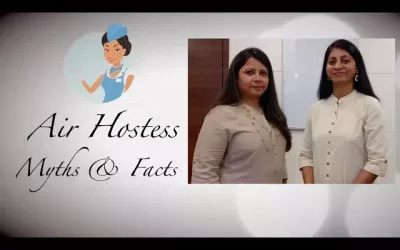
Passing the Torch: A Guide to a Fulfilling Career in Teaching
When we think about a teacher, memories of our childhood cross our mind. We can visualize ourselves playing the role of our teachers and trying to mimic them.
If you are someone who is thinking of pursuing teaching as a profession, in this episode Ms. Mugdha Shetye talks about understanding Teaching as a Career.
Teachers are an inseparable part of an individual’s growing up days and have a great impact on the thinking and behavior of an individual. A teacher helps a student develop Physically, Intellectually, and Morally.
The educational route to becoming a teacher is; one can pursue Diploma, post-class 12th, any stream, one has an option of pursuing a Diploma in Early Childhood Care Education, which is a one-year course, or else one can think of doing a D.T.ED i.e. Diploma in Teachers Education, which is two years course post 10 +2 any stream.
Further one can pursue a Bachelor in Education which is known by the name B.Ed., though it is a bachelor’s course by the name the eligibility to enter this course is minimum Graduation in any stream, and entry to this course is purely based on the clearance of entrance exams conducted by various States and Institutes.
The duration of the course is two years. Interested candidates can pursue higher qualifications like M.Ed. or if they want to teach at college or university level they can clear Entrance Exams like NET or SET conducted by UPSC. Some institutes offer integrated courses such as B. A or B.Sc. B. Ed. You may have to clear the relevant entrance exam to seek admission to this course. The duration of this course is five years.
To become a teacher one needs to possess certain personality traits. Apart from having a good grasp on the subject, one needs to have a keenness to take up the responsibilities, a good amount of patience and perseverance, and most importantly good communication skills, listening skills, knowledge, and passion for the subject they wish to teach, ability to build a caring relationship with students, friendliness and approachability, excellent preparation and organization skills.
The job prospects for teachers are quite good one can seek employment in Play Schools, Nursery Schools, Primary or Elementary Schools, Secondary schools, Colleges, and Universities. One can work with Educational Research institutes, and self-employments by starting Institutes or Tutorials. One can also specialize in special education and handle children who have some disabilities like vision problems, mental retardation, or physically handicapped children.
The market is always in need of competent teachers. With the emergence of public and private schools everywhere, and the rise of private institutes and universities, the need for professors and lecturers is all-time high. Teaching is not just verbal and face-to-face, it has developed into E-Learning modules and online web teaching strategies as well.
Therefore job prospects are higher for those who want to take up teaching as a career. So why not thread down the lane of teaching to impact the world and create a better-educated society to live in?
Frequently Asked Questions For Career In Teaching
What is a career in teaching all about?
A career in teaching involves educating and guiding students of various age groups in academic subjects, life skills, and personal development.
What levels and subjects can I teach as a teacher?
Teachers can work at different educational levels, including preschool, elementary, middle school, high school, and higher education. They can specialize in subjects such as math, science, literature, history, or special education, among others.
What educational qualifications are required to become a teacher?
The educational requirements vary depending on the level and subject you wish to teach. Generally, a bachelor’s degree in education or a related field is required for K-12 teaching. Higher education instructors often hold master’s or doctoral degrees.
Is a teaching credential or certification necessary to become a teacher?
Many regions require teachers to obtain a teaching credential or certification, which typically involves completing specific coursework and passing exams. Requirements vary by location and grade level.
What skills are important for a successful teaching career?
Essential skills for teachers include communication, classroom management, lesson planning, adaptability, empathy, patience, and the ability to connect with and motivate students.
Where can teachers work, and what are the different types of teaching environments?
Teachers can work in public or private schools, charter schools, international schools, online education, homeschooling, and educational institutions at all levels. They may also work in non-profit organizations, tutoring centers, or corporate training.
What are the career prospects for teachers?
Career prospects for teachers are generally favorable, as there is a consistent demand for educators. Job opportunities may vary by location, subject area, and level of expertise.
How do teachers adapt to changing technology in education?
Teachers incorporate technology into their classrooms by using interactive whiteboards, educational software, online resources, and digital communication tools to enhance learning experiences.
What is the importance of professional development for teachers?
Professional development is crucial for teachers to stay current with best practices, educational trends, and teaching methodologies. It helps them continually improve their teaching skills.
Is teaching financially rewarding?
Teaching salaries vary by location, level of education, and years of experience. While teaching may not be the highest-paying profession, it offers intrinsic rewards and job security.
How do teachers contribute to society?
Teachers play a vital role in shaping future generations by imparting knowledge, fostering critical thinking, and helping students develop essential life skills. They contribute to the growth and progress of society.
What is the role of a teacher in promoting inclusivity and diversity in the classroom?
Teachers create inclusive and diverse learning environments by embracing different cultures, backgrounds, and learning styles. They ensure that all students have equal opportunities to succeed.






